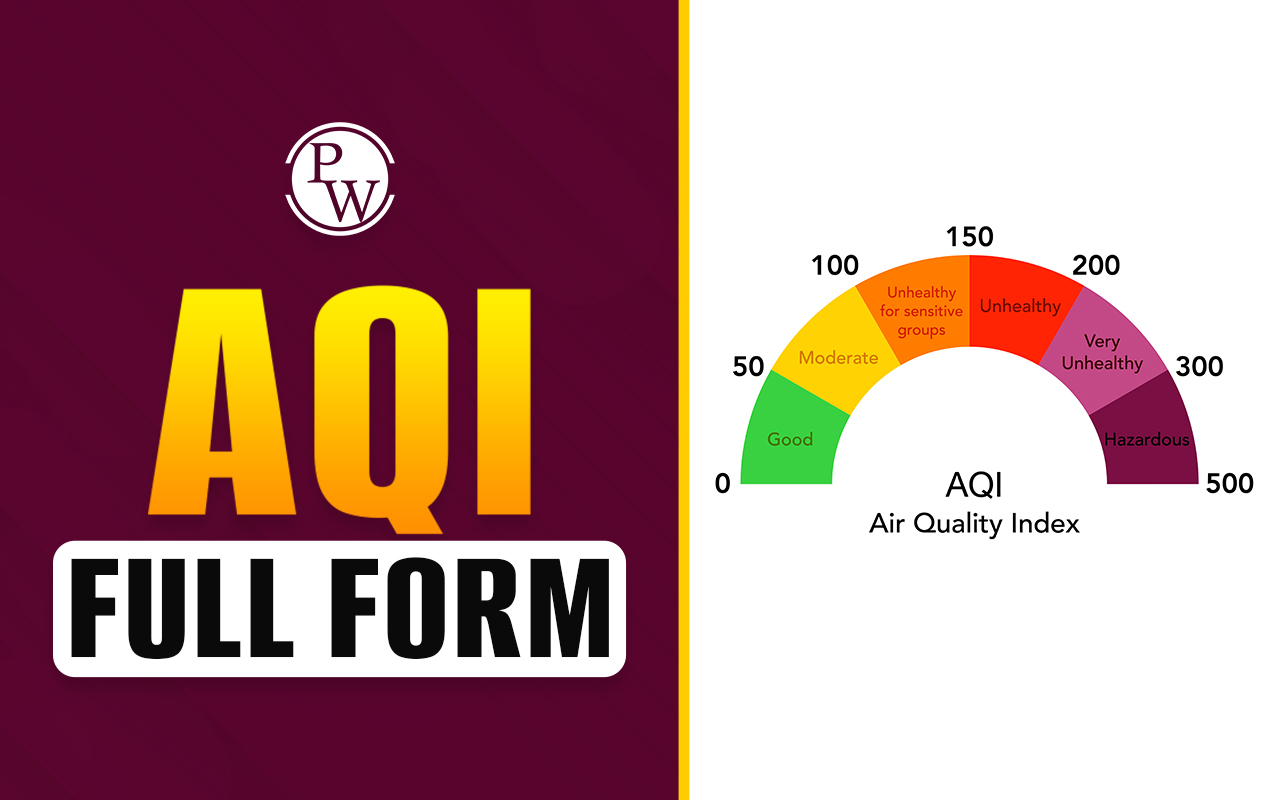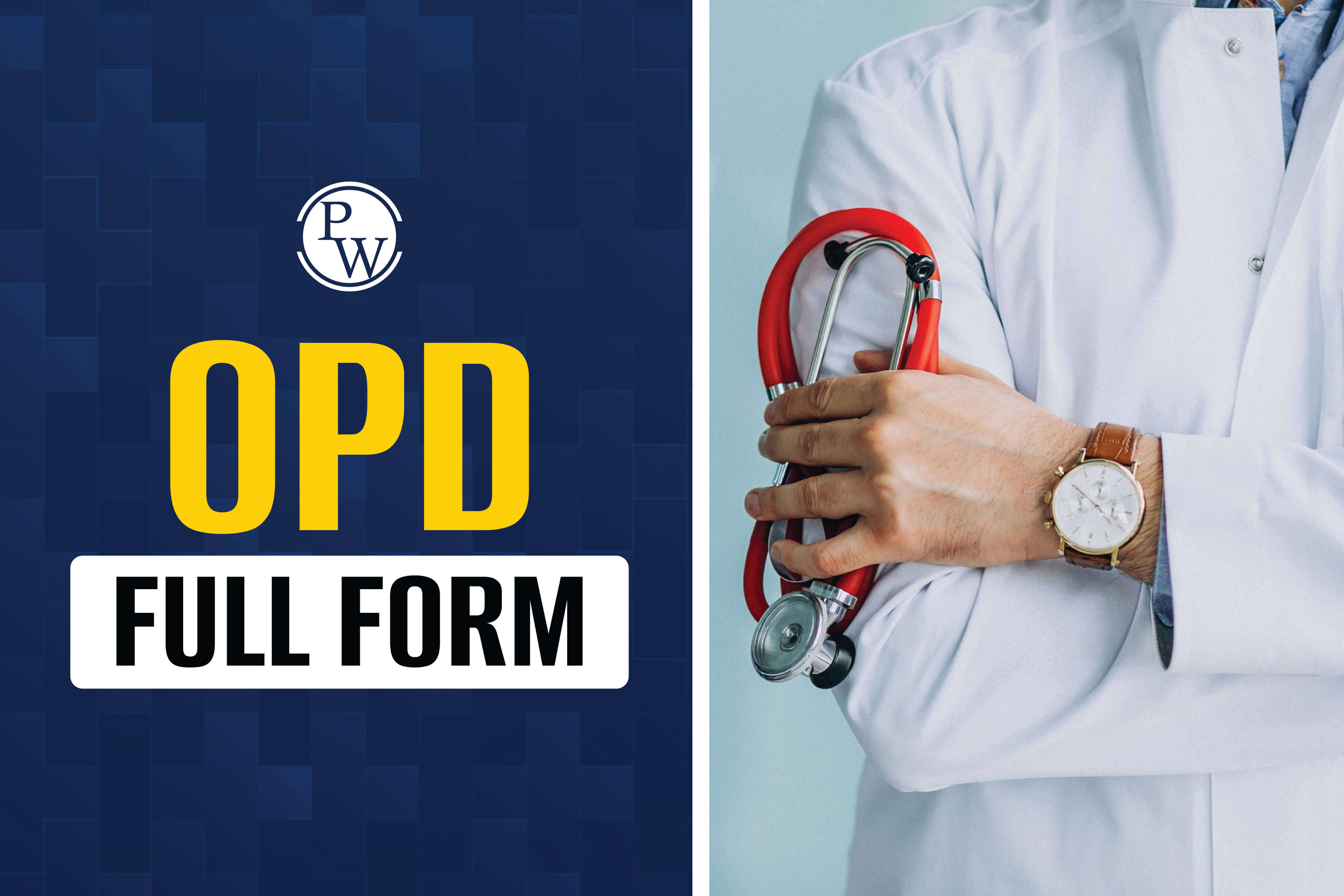
OPD Full Form: An OPD is the place in a hospital or clinic where patients are given medical consultation, diagnosis, and minor treatments without being admitted to the hospital. OPDs are, in fact, the first points of contact between patients and health practitioners. Patients coming to the OPDs for consultations often include those for routine check-ups, therapies, diagnostic work-ups, etc.
After treatment, they may be allowed to go home the same day. The OPD covers a wide range of disciplines, including general medicine, orthopedics, gynecology, etc. Therefore, this area affords a chance for patients to get quick and cost-effective medical service for non-emergency cases.
OPD Full Form
An OPD has organized what is deemed the primary point of communication between a patient and the medical professionals in a medical department.
-
O stands for Out
-
P stands for Patient
-
D stands for Department
An OPD is generally located on the ground floor of each hospital and is split into various departments. A patient who arrives in the hospital for consultation goes to the particular OPD department according to his/her complaints.
OPD Full Form in Hindi
OPD का फुल फॉर्म "Outpatient Department" होता है, जिसे हिंदी में "आउट पेशेंट विभाग" या "बाहरी रोगी विभाग" कहा जाता है। यह अस्पताल का वह हिस्सा है जहाँ मरीज बिना भर्ती हुए डॉक्टर से परामर्श, जांच और उपचार प्राप्त करते हैं। OPD में मरीज टेस्ट, दवा, और छोटी प्रक्रियाएं कराते हैं, फिर घर लौट जाते हैं। यह सुविधा मरीजों के लिए सुविधाजनक और किफायती होती है क्योंकि इसमें अस्पताल में भर्ती होने की जरूरत नहीं होती। OPD अस्पताल के ग्राउंड फ्लोर या रिसेप्शन के पास होती है जहाँ मरीज पंजीकरण के बाद डॉक्टर से मिलते हैं और इलाज शुरू करते हैं।
What is OPD in a Hospital?
OPD, meaning in medical terms, is Outpatient Department. It refers to a special section in the hospital or clinic where patients get medical consultation, diagnosis, and treatment without needing to stay in the hospital overnight. Patients come to the OPD for a variety of health problems, including routine physical check-ups, minor injuries, and follow-up treatments.
Unlike inpatient care, OPD does not require the patient to be admitted to the hospital for the services to be given. This makes this approach very convenient and cost-effective for availing healthcare. OPDs thus play an important role in the timely detection of diseases, routine health services, and also more effective management of chronic illnesses.
Functions of OPD
The OPD aids the hospitals in managing the flow of patients and saves utterly unnecessary hospital stays, thus giving timely care to a multitude of patients. The OPD performs many important functions for health care delivery. OPD services in the hospital include:
- Consultations: Patients consult with doctors and specialists on health matters.
-
Diagnosis and Tests: OPD performs certain kinds of testing (e.g., blood tests, X-rays, and ultrasounds) for diagnosing specific illnesses.
-
Minor Treatment and Procedures: The OPD performs minor procedures, e.g., surgeries, wound care, vaccinations, etc., on an outpatient basis, writes prescriptions, and dispenses medications.
-
Health Screenings and Preventive Care: Regular checkups and screenings for common diseases are carried out to prevent complications.
-
Follow-Up: After surgical and other treatments, OPD entails follow-up on the patient's recovery.
-
Referral Services: If necessary, OPDs now refer patients to hospitals or specialists.
-
Health Education: OPD informs patients about lifestyle changes, medications, and disease management to create a better environment in which to thrive.
OPD Departments in Hospital
By organizing the OPD into specialized departments, hospitals are able to handle different medical needs under specialized departments. Organizing OPD ensures that the department provides outpatient treatment in a much more specialized, effective, and focused way. These departments are designed so that expert care is given to patients according to their conditions.
-
General Medicine OPD: Common illnesses and diagnosis in early stages
-
Pediatrics OPD: Focus on children's health and immunizations
-
Gynecology OPD: Women received reproductive health and prenatal care
-
Orthopedics OPD: Bone and joint, Muscles, etc
-
ENT OPD: Ear, nose, and throat-related problems
-
Dermatology OPD: Skin-related issues
-
Dental OPD: Oral health and dental treatment
-
Cardiology OPD: Heart disease and other related check-ups
-
Psychiatry OPD: For mental health and counseling services
-
Ophthalmology OPD: For eye care and vision testing
OPD Meaning in Health Insurance
In health insurance, OPD refers to the Outpatient Department. OPD is a significant aspect of many health insurance policies. It helps an individual with the expenses incurred on medical treatment without being admitted to the hospital.
OPD in health insurance refers to the medical expenses incurred for the treatment or consultation, not requiring hospitalization. It typically refers to attending a doctor’s clinic, doing diagnostic tests, paying pharmacy bills, and undertaking minor procedures performed in an outpatient setting.
OPD vs IPD Key Differences
In hospitals, modalities of treatment are given to patients depending on the severity of the illness. Two normal methods are OPD and IPD. OPD is for patients who come to the hospital for consultation or to receive minor treatments without being admitted overnight. IPD, on the other hand, allows an admission with the patient being kept in the hospital for constant care, surgery, or major treatment.
Knowing the difference between OPD and IPD will help patients know what type of care they require.
|
OPD vs IPD |
||
|
Aspect |
OPD (Outpatient Department) |
IPD (Inpatient Department) |
|
Meaning |
Treatment without hospital admission |
Requires hospital admission with overnight stay |
|
Duration of Care |
Short visit, usually a few hours |
Longer stay, from days to weeks |
|
Treatment Type |
Minor procedures, consultations, diagnostic tests |
Major surgeries, intensive care, complex treatments |
|
Stay in Hospital |
Not required |
Required |
|
Cost |
Less expensive |
More expensive due to facilities & longer stay |
|
Convenience |
Flexible, patients can maintain their daily routine |
Hospital stays affect daily life |
|
Examples |
General check-ups, lab tests, and vaccination |
Surgery, childbirth, treatment for serious illness |
The Outpatient Department (OPD) is crucial in modern healthcare. It offers quick, efficient medical services without the need for hospital stays. OPD makes healthcare accessible, affordable, and convenient for patients with common illnesses and minor treatment needs.
OPDFull Form FAQs
What is OPD full form?
What services are provided under OPD? Relating to OPD services, they would include routine check-ups, diagnostic tests, minor procedures, vaccination, and follow-ups.
Does one need an appointment to visit an OPD?
What is the difference between OPD and IPD?
Are OPD services insured?










